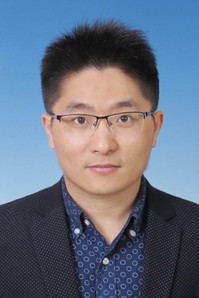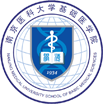
曹磊,副教授,博士,硕士生导师
科学研究方向
帕金森病的病理机制研究与药物靶点发现
联系方式
通讯:江苏省南京市江宁区龙眠大道101号药理学系,邮编211166
电话:025-86869339
电邮:leicao@njmu.edu.cn
简介
南京医科大学2022年引进人才,主要从事神经系统疾病包括帕金森病、脑卒中和阿尔茨海默症的病理机制研究,发现与确证潜在的药物治疗靶点。近年来以第一作者身份在Science Advances, Pharmacology & Therapeutics, Brain Behavior and Immunity, Cell Death & Disease期刊发表论文。担任CNS Neuroscience & Therapeutics、《药物评价研究》杂志的审稿专家。
承担科研课题
1.国家自然科学基金青年基金项目,JWA调控铁死亡治疗帕金森病的机制研究及其小分子药物的药效评估,82204357,30万,2023.01-2025.12,主持;
代表性论文
1. Cao, L., Xiong, S., Wu, Z., Ding, L., Zhou, Y., Sun, H., Zhu, M., Lee, W. T., Nie, X., & Bian, J. S. (2021). Anti-Na(+)/K(+)-ATPase immunotherapy ameliorates alpha-synuclein pathology through activation of Na(+)/K(+)-ATPase alpha1-dependent autophagy. Sci Adv, 7(5). https://doi.org/10.1126/sciadv.abc5062
2. Cao, L., Cao, X., Zhou, Y., Nagpure, B. V., Wu, Z. Y., Hu, L. F., Yang, Y., Sethi, G., Moore, P. K., & Bian, J. S. (2018). Hydrogen sulfide inhibits ATP-induced neuroinflammation and Abeta(1-42) synthesis by suppressing the activation of STAT3 and cathepsin S. Brain Behav Immun, 73, 603-614. https://doi.org/10.1016/j.bbi.2018.07.005
3. #Cao, X., #Cao, L., Zhang, W., Lu, R., Bian, J. S., & Nie, X. (2020). Therapeutic potential of sulfur-containing natural products in inflammatory diseases. Pharmacol Ther, 216, 107687. https://doi.org/10.1016/j.pharmthera.2020.107687
4. #Shi, M., #Cao, L., Cao, X., Zhu, M., Zhang, X., Wu, Z., Xiong, S., Xie, Z., Yang, Y., Chen, J., Wong, P. T. H., & Bian, J. S. (2018). DR-region of Na(+)/K(+) ATPase is a target to treat excitotoxicity and stroke. Cell Death Dis, 10(1), 6. https://doi.org/10.1038/s41419-018-1230-5
5. #Liu, Y., #Cao, L., Song, Y., Kang, Z., Liu, T., Ding, J., Hu, G., & Lu, M. (2022). Mitochondrial glutamine transporter SLC1A5_var, a potential target to suppress astrocyte reactivity in Parkinson's Disease. Cell Death Dis, 13(11), 946. https://doi.org/10.1038/s41419-022-05399-z






